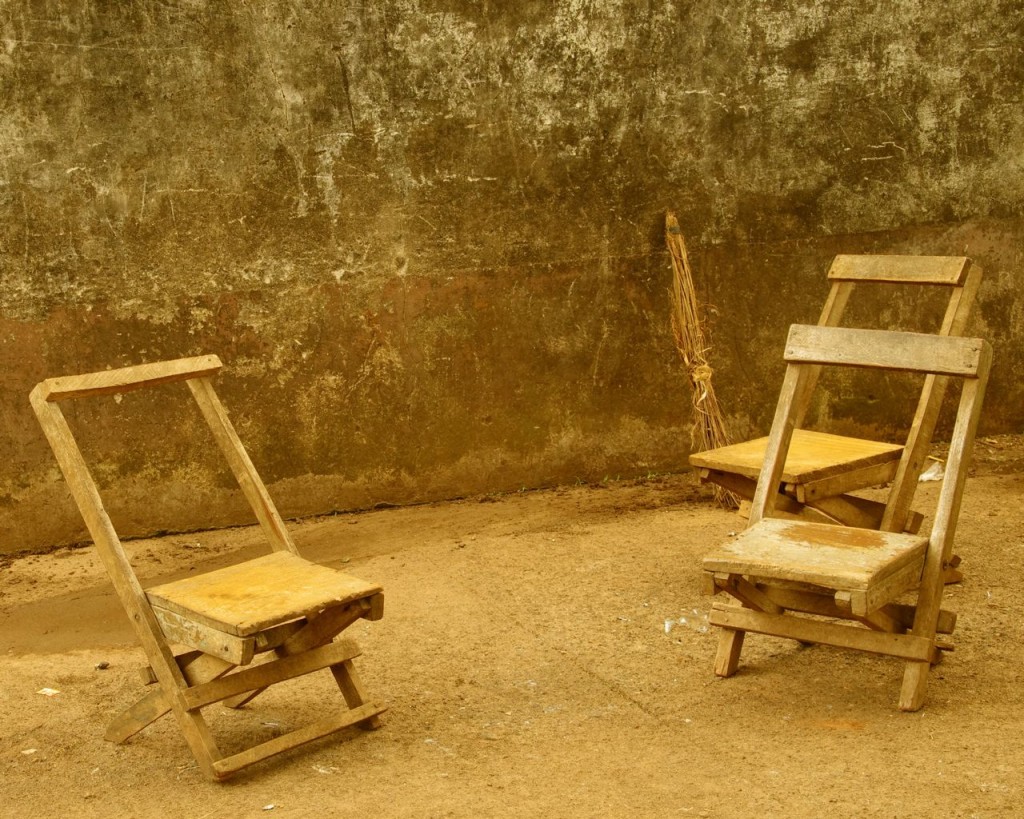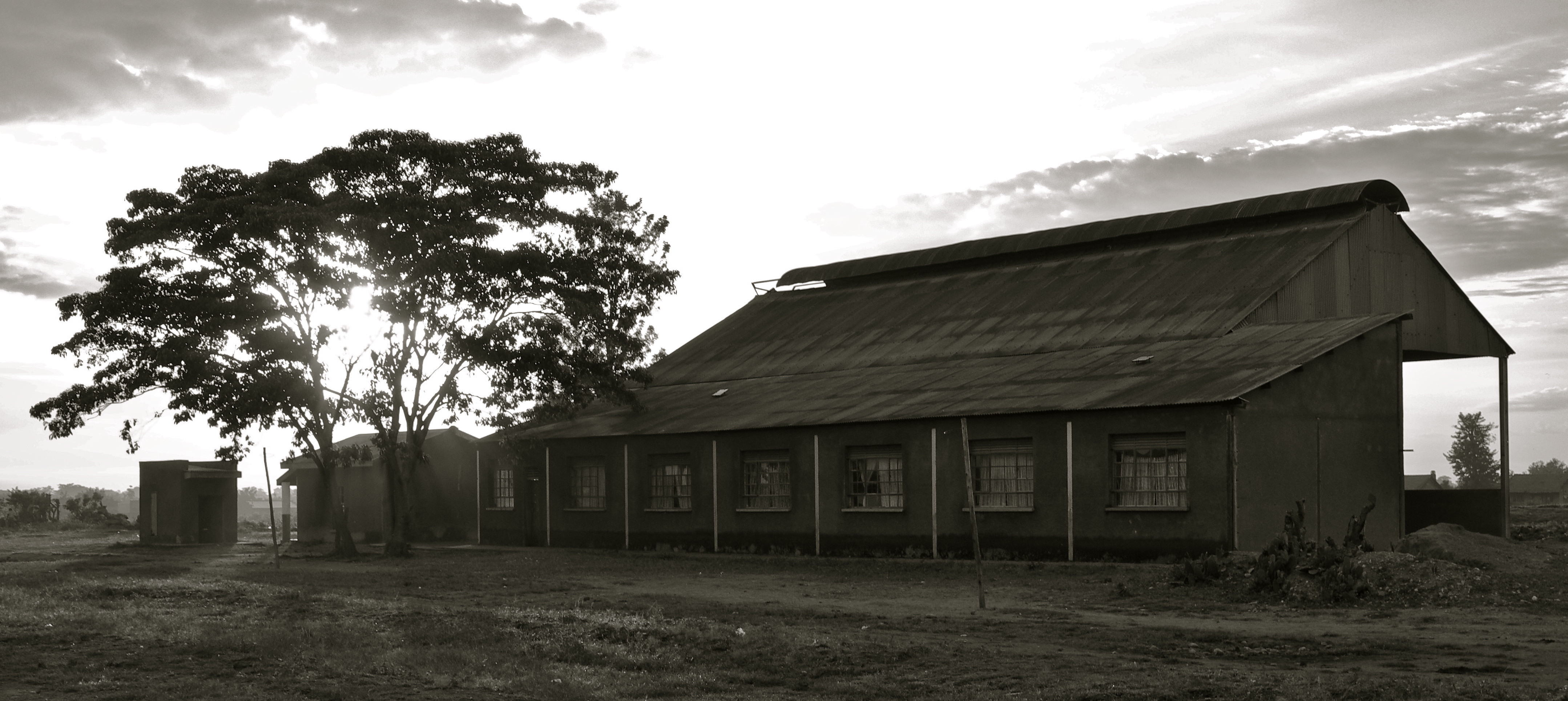In Uganda I am shackled by my outsiderness. I cannot be totally myself, because I am not just me. I am America. With so much animosity toward Americans around the world, whether I like it or not, whatever I say I am speaking not just for myself, but for all Americans. I am not a fair representative. One person cannot even begin to embody all the aspects and personalities of the United States of America. Yet, here I do. I represent America not just when I am standing in front of a classroom of Ugandan students, but also when I am buying water at the market and when I am sitting on a cross-country bus. Mostly this means checking my sarcasm. It means being extra courteous. It means being aware of America’s reputation and how quickly it can recolor a conversation. However, this dynamic comes into sharp relief when someone makes a racist or otherwise discriminatory remark in the course of our conversation. I don’t want to risk total alienation when I speak up against racist statements. But I don’t want to let them stand either.
I’ve had several moments like this and I am still not entirely sure how to handle them. Let me give an example.  About a week ago, we went to a “bar” to try a local brew. I say “bar” because it is not what you are picturing. There are no neon lights, no peanuts, no bar. There are circles of men sitting outside around buckets ofmarua drinking out of yard-long filtered straws. We were invited to join one of these circles. Even Michelle and I were despite being female. We had a pleasant conversation about the differences between Uganda and America—food, agriculture, marriage. Somehow, I’m not even sure how, one of the men brought up Indians in Uganda.
About a week ago, we went to a “bar” to try a local brew. I say “bar” because it is not what you are picturing. There are no neon lights, no peanuts, no bar. There are circles of men sitting outside around buckets ofmarua drinking out of yard-long filtered straws. We were invited to join one of these circles. Even Michelle and I were despite being female. We had a pleasant conversation about the differences between Uganda and America—food, agriculture, marriage. Somehow, I’m not even sure how, one of the men brought up Indians in Uganda.
Almost since arriving, I was curious about the relationship between the Africans and Indians here. Quick and dirty history lesson: Indians first arrived in Uganda when the British as the colonial power brought them here to build the railroad. (Why they needed Indians for this is a mystery to me.) The Indians eventually started moving up the economic ladder starting many businesses in the country and dominating much of the economy. This, unsurprisingly, caused a lot of resentment among African Ugandans. Idi Amin quickly banished them after taking power from the country and reallocated their businesses and property to non-Indians. Museveni invited Indians to return early in his presidency. Now, in my experience, Indians are a small, but visible minority. They run almost all of the supermarkets and electronic stores we have visited. The stereotypes that contributed to Amin’s expulsion remain, however.
They certainly live in the man we shared marua with. This man told us pointblank that Indians are selfish. They keep to themselves and try to take all of Uganda’s money for themselves. He tried to make a compliment to us by comparing us to Indians. Whites are interested in sitting down with Africans. Whites want to meet with Africans and make friends with them. When we asked what would happen if Indians came into this “bar” looking to sit down with us what would happen. The man rejected the idea outright. He said, “Would never happen.” But, we prodded, just pretending that it did happen, hypothetically, what would happen? This man would not play the game. “An Indian would not come,” he said. Maybe the Indian would not come, but it sounds to me like the Indian is not welcome.
When it become clear to this man that we were not understanding the Indian’s selfishness, he tried a different tactic—talking not just about Indians in Uganda, but expanding to Indians in India. Looking to compare India, Uganda, and the US he asked us what the difference between the three is. We tried to say that the differences are too great and too intangible to make a simple comparison, but he wouldn’t let us. He interrupted with, “Have you ever been in India?” As a matter of fact I have. “And were they welcoming” he asked. “They were very welcoming,” I said through gritted teeth. I was getting angry. He argued with me by denying my experience. I knew I needed to calm down, but I couldn’t help it. “I spent over a month in India and I was welcomed at ever turn!”
Sensing my extreme agitation, Conor rightly interceded. Conor suggested that welcoming guests and welcoming foreign residents to one’s country are different things. And visiting a country and living in a country are different things. While Conor’s comments were not accepted any more readily, they did defuse a possibly divisive situation. We left the meeting with smiles on all sides, but hopefully our comments caused at least reflection on their own.
In the United States, in my own culture, I am able to confront racist statements directly. But here we have to protect the fragile race relations between whites and blacks too. I don’t want to add whites to the list of hated races as I work to take Indians off it. I think, in this circumstance, where we are the outsiders, Conor’s path rather than the path I was heading down is the better way. Unfortunately, I am sure that I will have more opportunity to practice—to find the best path—when confronted with these kinds of statements.
To be fair, one man I asked about African and Indian relations told me they were great. He said they ran businesses and brought money and they are welcome. And I have seen Indian and African men dining together—they are willing to sit down together. Clearly, thankfully, this animosity is not universal in Uganda.
